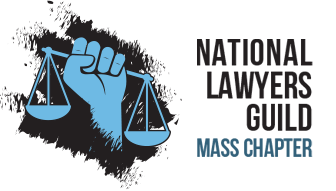Barb Dougan, Legal Director at CAIR-Massachusetts
On October 29, the Mass. Commission Against Discrimination (MCAD) issued a “probable cause” finding in a public accommodations case that CAIR-Massachusetts filed in 2022. The case concerned an appalling incident at a McDonald’s restaurant in Chicopee. When a Muslim woman ordered a fish sandwich for her 7-year-old son, McDonald’s employees stuffed it full of bacon (you can see a photo here), which the child did not discover until after leaving the store. His father later returned to McDonald’s with the remains of the sandwich. As the father filmed the conversation, the manager acknowledged that fish sandwiches do not come with bacon and that it was unlikely the cashier accidentally hit the “add bacon” button because it is not located near the “fish sandwich” button on the cash register.
In similar cases, we have conducted “testing,” which can generate more evidence for a case. The usual practice involves pairs of testers, who are similarly matched except for the basis of the suspected discrimination (race, gender, religion, etc.). They are sent separately into a situation – for example, applying to rent an apartment – to see how each tester is treated. In the context of housing discrimination, the U.S. Supreme Court has recognized the validity of testing evidence. Havens Realty Corp. v. Coleman, 456 U.S. 363 (1982).
Although testing is used less frequently in public accommodations cases, CAIR-MA has sent testers to restaurants, stores, and malls. Testing evidence has helped us strengthen some claims while, in one instance, it showed us that religion may not have played a role as we first thought, or at least that religious discrimination would have been difficult to prove.
With this case, we chose not to send testers right after the incident. The Chicopee manager was aware of what had happened, making it unlikely that employees would repeat their actions, at least not right away. Instead, we waited until after McDonald’s had filed its response to our complaint, thereby committing itself to a specific version of the facts.
We also chose not to send in Muslim/non-Muslim pairs of testers for various reasons, and instead sent only non-Muslims. When we posted to the NLG to see who might help us assess McDonald’s defenses, Chelsea Contrada and Tyler Ingraham answered the call, and Tyler even recruited a third lawyer. On separate occasions, they went to the store and ordered burgers with bacon, photographed or sketched the layout of the store, and observed the interactions between employees.
The information they provided, memorialized in affidavits, was invaluable. In our rebuttal, we were able to explain in detail why McDonald’s claim that the bacon was added as the result of a “miscommunication” was not credible. As just one example, McDonald’s claimed that a plexiglass barrier in front of the register prevented the cashier and our client from hearing one another. But our testers described how they were able speak with the cashier with no problem while photos showed there was plenty of room for customers to stand to the side of the barrier.
At CAIR-MA, we have often discussed the ethical implications of asking members of a marginalized group to subject themselves to even more racist or Islamophobic abuse than they already must contend with. As a result, we often ask non-Muslims to pose as Muslims, typically by asking non-Muslim women to conduct a test while wearing hijabs. Non-Muslims sometimes express a level of discomfort about this but, believe me, CAIR-MA’s Muslim staff has no problem with it; in fact, they are delighted that non-Muslim allies are willing to help us.
The same is even more true for our clients. When we solicit testers, we try to make it sound like something fun to do – and it can be. But we never forget that our clients have been profoundly humiliated and insulted. They are gratified and even surprised that strangers, especially those who do not share their faith, are willing to give their time and energy to help them seek justice.
Finally, we must note that MCAD’s finding of probable cause is not a final decision. The testing evidence was not mentioned in the decision, but we have no doubt it was effective. We look forward to moving forward with the case. And we hope that the next time CAIR-MA puts out a call for testers, NLG members will continue to step up.
Barb Dougan is the Legal Director at CAIR-Massachusetts.



